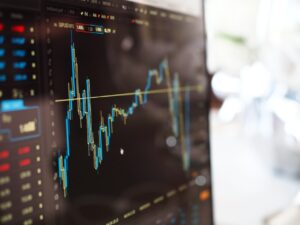
Mistakes made by ordinary investors
MISTAKES MADE BY INVESTORS
Written by R. A. Stewart
We all make mistakes; none more so than when we are making investments but it is important to learn from your mistakes in order not to repeat them. It is also important for investors to note that a financial mistake should not be a deterrent to making further investments. Just keep saving and investing and that will make life easier later on.
Mistakes made by ordinary investors
If you have money invested in your country’s retirement plan then you are an investor whether you know anything about the markets or not. Chances are you have your money investyed in some kind of mutual fund which is managed by a fund manager who invests on your behalf. It is up to you to decide on which fund to invest in and for how long.
1-Too Conservative
You have got to learn how to be an investor and take calculated risks; there are no two ways about it. You can manage these risks to take into consideration you age, goals, and your timeline. If you have your money in conservative funds and you are in your twenties then your retirement fund will fall far short of where it is likely to be when you retire. Investing in growth funds is all about achieving capital gains.
2-Too inconsistent
Lack of consistency as far as contributing to your retirement fund will cost you in the long run. It is easy to be consistent in your contributions when the share market is going strong but it is when the markets are bearish that you need to motivate yourself to keep investing because during the low points is when there are bargains in the share market. If you are working in some type of job then a percentage of your gross wages will be deducted and deposited into your kiwisaver account.
3-Too Emotional
Fear and greed is what drives the share market is an old cliche which rings true. Many investors react to the market’s swings and roundabouts and sell when they should hang on to their stocks. Investing in the share market is a long term game; it is not a sprint, it is a marathon. If you have some kind of retirement fund then your fund manager invests on your behalf, however if you are in New Zealand you are able to switch funds which some investors do in reaction to what the market is doing. If you have some kind of financial goals then this should take into consideration a possible share market crash.
4-Too Greedy
Many investors are simply too greedy; they invest in something offering high returns without paying any attention to the risk they are taking on, or worse still, they place all of their eggs in one basket hoping to make a killing. This all or nothing approach has destroyed several retirement plans. This was certainly the case when several investors saw their life savings disappear with the collapse of several finance companies. Diversification minimizes your risk.
5-Too Impatient
Patience is the name of the game in investing. It is time and not timing which will build your retirement riches. There will be ups and downs in the markets but a bit of patience will pay off in the long run. Something some people do not have so the invest in risky stuff offering quick returns and end up ,losing more often than not.
6-Too Gullible
There are offers or as the are called “opportunities,”promoted online mostly and sometimes in the print media as a way of making quick profits. If an investment seems too good to be true then it mostly certainly is. Usually the person or company promoted such offers are the ones making money out of it. You may have read stories about the amount of money such people have made from whatever it is being promoted but tey are in the minority.
It is up to investors to take responsibility for their own decisions and not try to find a scapegoat if things turn to custard.
ABOUT THIS ARTICLE
This article is based on the writer’s own experience and opinion and may not be applicable to your personal circumstances. Please do your own due diligence when investing. You may share this article or use it as content for your ebook or website.



